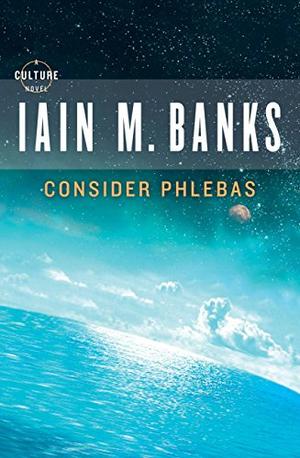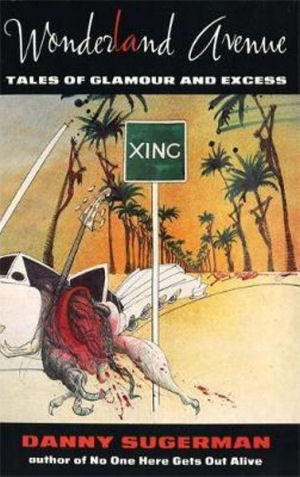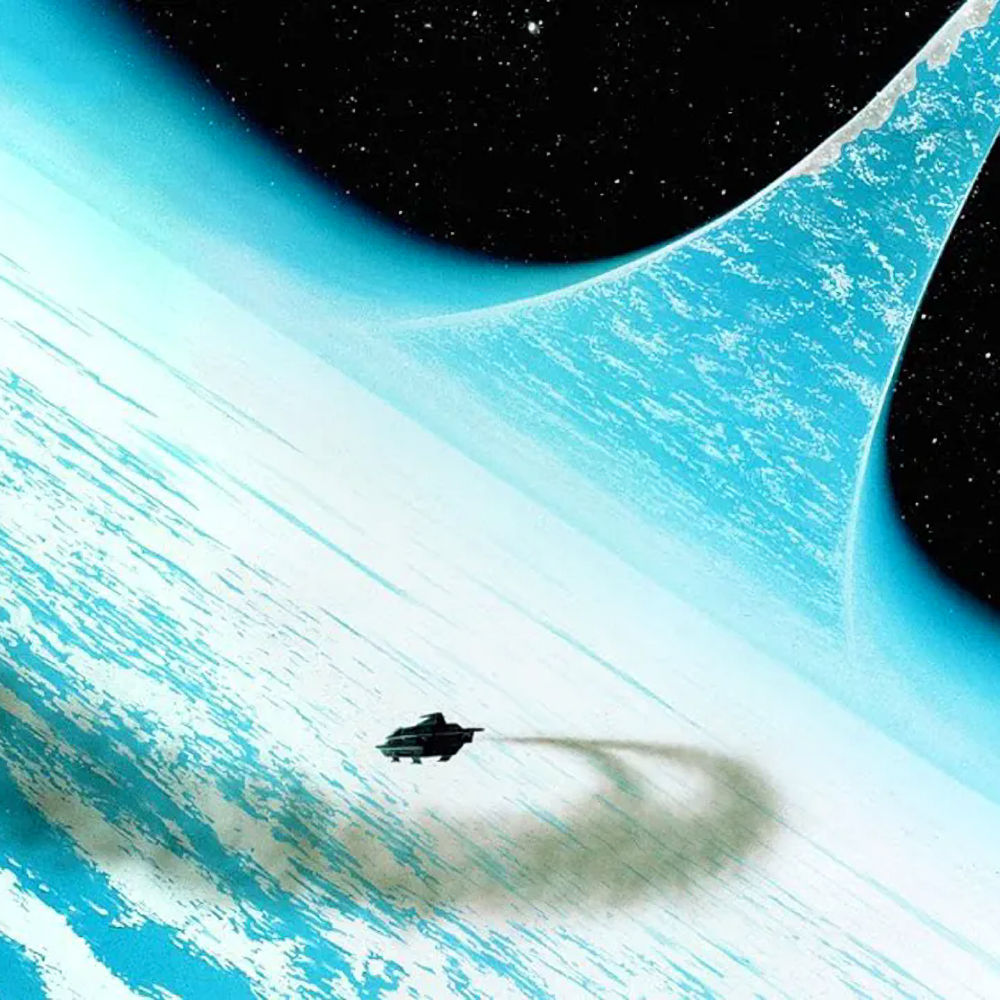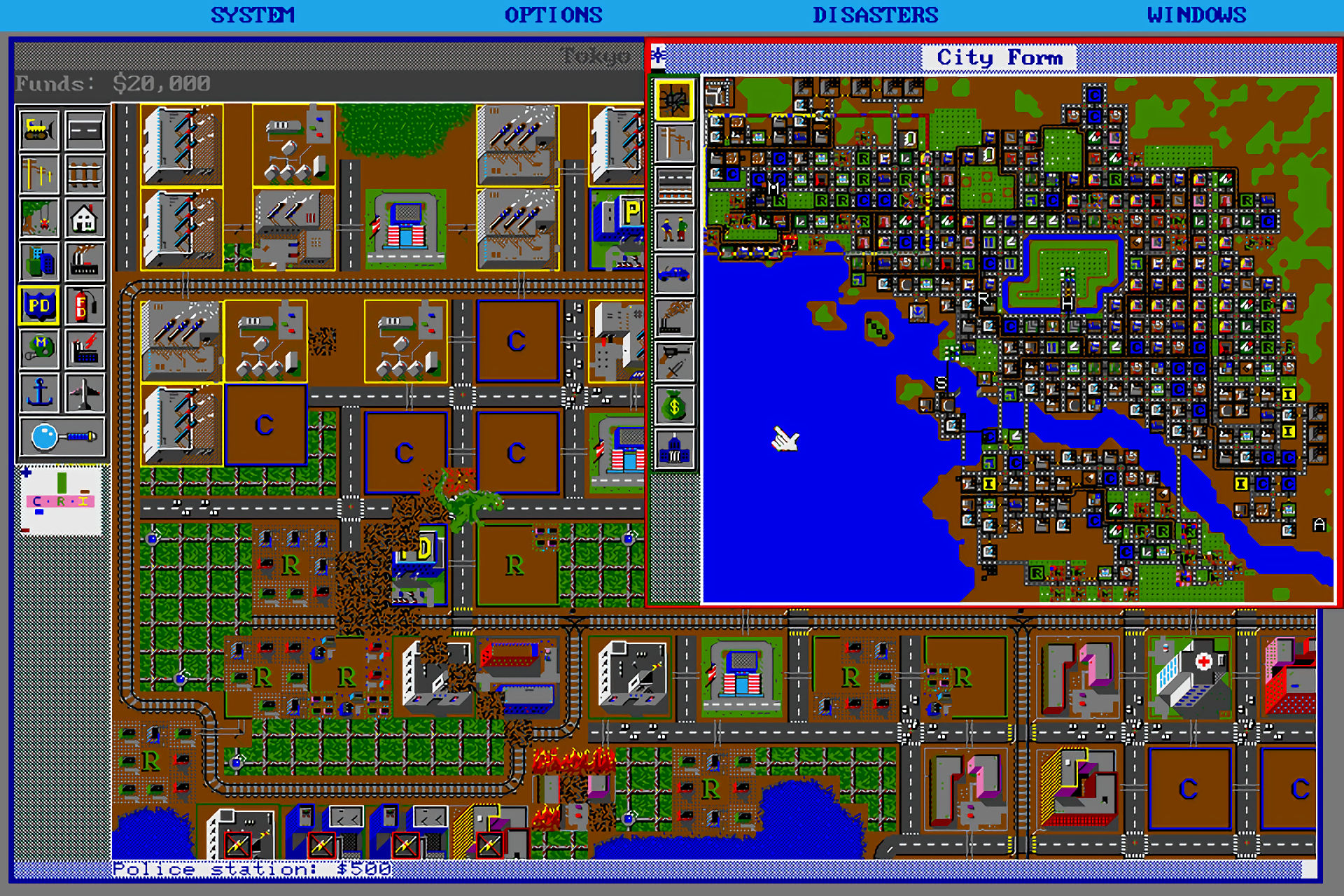Consider Phlebas by Iain M. Banks

This is quite possibly – along with book three in this list – what got me into science fiction in a big way. I was in my mid-teens when I first read Consider Phlebas and it opened up the universe of Banks in such a big way that I developed a voracious appetite for The Culture. So much that character names from his books have featured in numerous online ventures. Names like Horza, Zakalwe and Excession.
The epic scale of a war spanning light-years sets the back drop of the story of Bora Horza Gobuchul and his quest to locate a renegade Mind lost on one of the famous Planets of the Dead controlled by the elder Dra’Azon species.
The war sets the scene but the book is really a collection of short stories chronicling Horza’s adventures. The Temple of Light, the Megaship, the Eaters, the Damage game, the Command System. Horza’s escapades are numerous and Bank’s prose is both humorous and epic in scale.
What’s interesting – from the perspective of a Culture novel – is that Horza is an enemy of the Culture, choosing to fight for the Idiran’s in their holy war as the Idirans are ‘on the side of life’. This is a precursor to future Culture novels which a focused around the Minds which control that utopian society. For a first book to feature the enemy of your primary series protagonists is a bold step.
Thoroughly entertaining if ultimately futile as set out in the epilogue of Consider Phlebas, Horza’s escapades get 10 from 10 and a thorough recommendation.
Wonderland Avenue by Danny Sugerman

Wonderland Avenue hit me right in the feels during my tumultuous late teens. Handed to me by a friend I immediately fell in love with Sugerman’s portrayal of life with Jim Morrison of the Doors, and more importantly – both to the book and to me – his relationship with his father.
The book opens with Sugerman’s childhood and his difficult familial relationship and quickly introduces the music of the Doors to the reader. This was also a commentary on the impact of popular music on society and how it heralded social change.
Sugerman casts off the protection of his family and strikes out on his own falling under the wing of Morrison. It charts his rise – much to the disgust of his father – in the music industry, his encounters with drugs, relationships with other personas from the music scene and his ultimate fall from grace.
The book had my crying with laughter; Sugerman’s description of Iggy Pop in a dress chopping up a car with an axe is a firm favourite moment for the sheer hilarity. As is Sugerman’s call to the police to report his car stolen only for it to dawn on him that it’s in a house in Laurel Canyon having been driven off the road and through the roof. Wonderland Avenue is replete with comic set pieces which will have you laughing your ass off.
But there is also genuine sadness in the book. Estranged from his father and brother, hooked on narcotics, Sugerman’s demise and redemption was both joyous and difficult to read. It brought back personal feelings of remorse as to my own relationship with my father.
And when I turned the final page I cried tears for both Danny and for me.
The Hitchhiker’s Guide to the Galaxy by Douglas Adams

I can’t remember when I first read Hitchhikers. It was a long time ago. Funny, very English, and science fiction which borders on science fantasy. It’s the story of Arthur – a fairly average chap – who embarks on a whirlwind adventure with Ford Prefect, a researcher for the titular Hitchhiker’s guide (which has the words ‘DON’T PANIC’ in large, friendly letters on the cover.)
Adams wit is absurd, the plot borderline insane, but the true and very real message of Hitchhikers is largely what makes its appeal.
You see, to Adams, the universe is a joke and nothing actually really matters. Earth is bulldozed to make way for a hyperspace freeway, a towel is the most important thing a traveler can own, and The Answer to the Ultimate Question of Life, the Universe, and Everything is 42.
In many respects, Adam’s writing is nihilistic. It’s designed to show our place in the universe doesn’t matter. It doesn’t make a difference. There’s futility in the message but it’s wrapped up in the warm & comfortable prose of a writer at the top of his game.
You can enjoy Hitchhikers for the many jokes, set pieces, wry humour. For the offbeat characters such as Zaphod Beeblebrox – the two headed, three armed Galactic President and Marvin the Paranoid Android who dwells in the depths of depression. Or you can see it as it is meant to be; a treatise on the scope of the universe and how little, how so very little, we small humans matter.
So long, and thanks for all the fish.
What is your favourite book? Share in the comments below.



